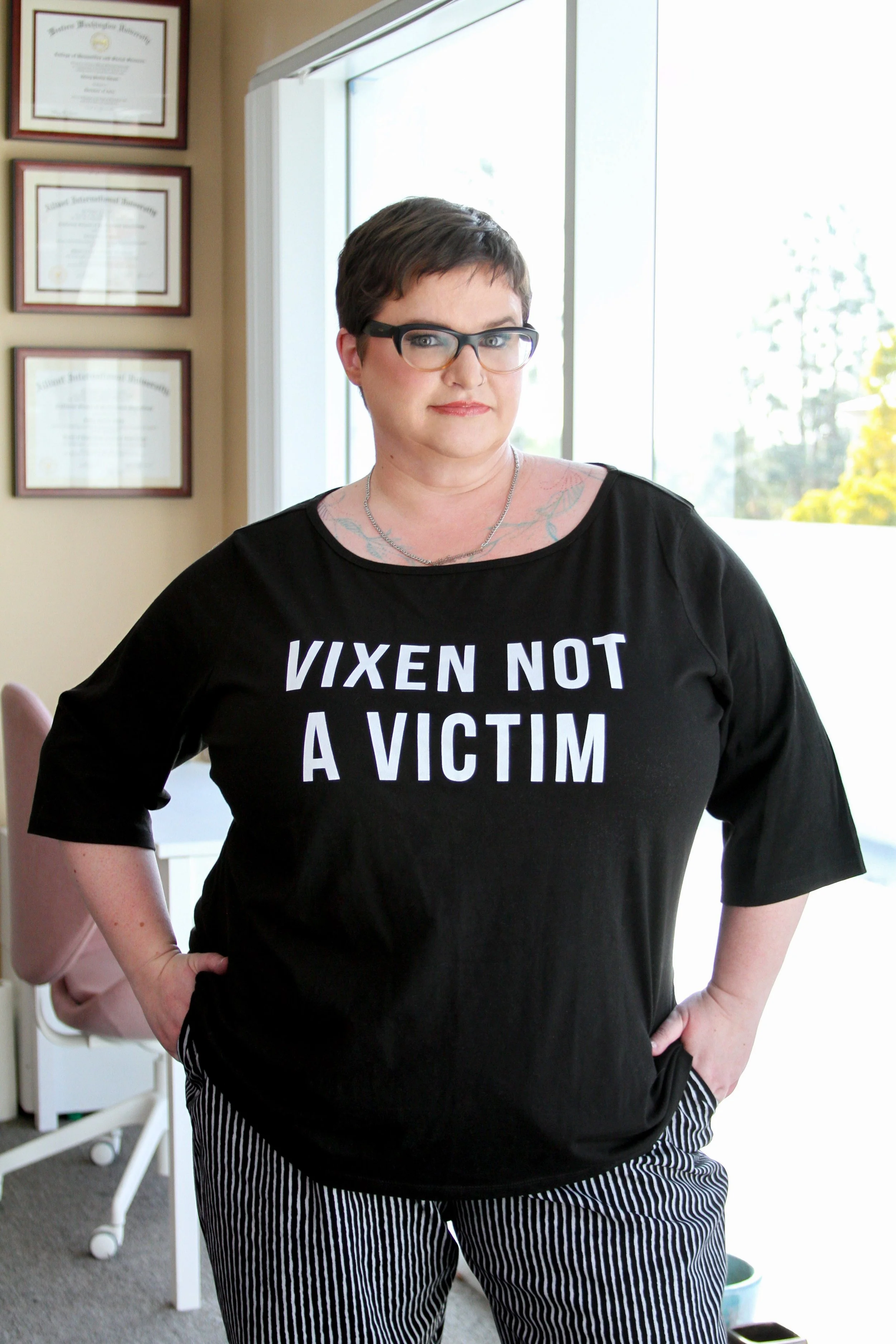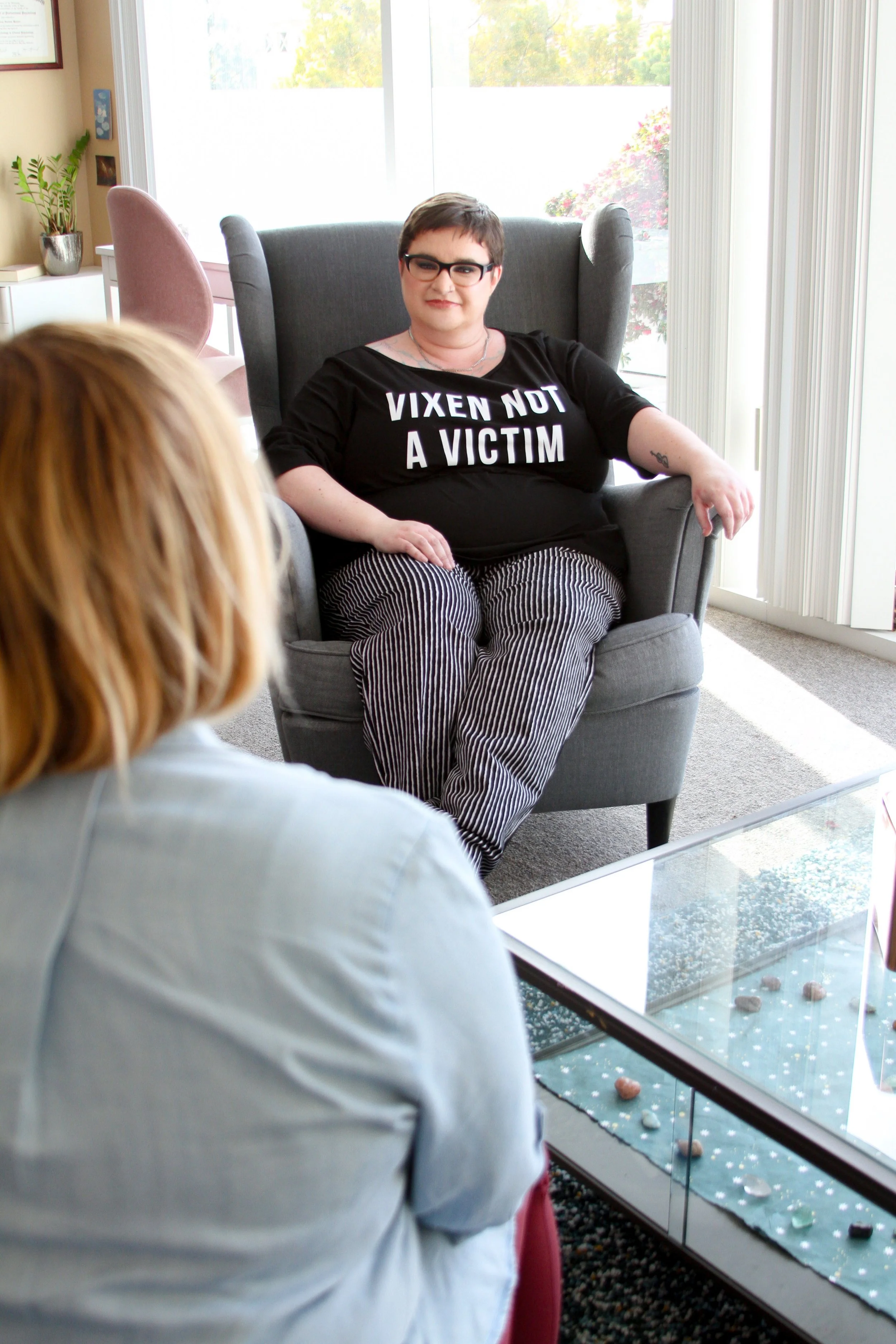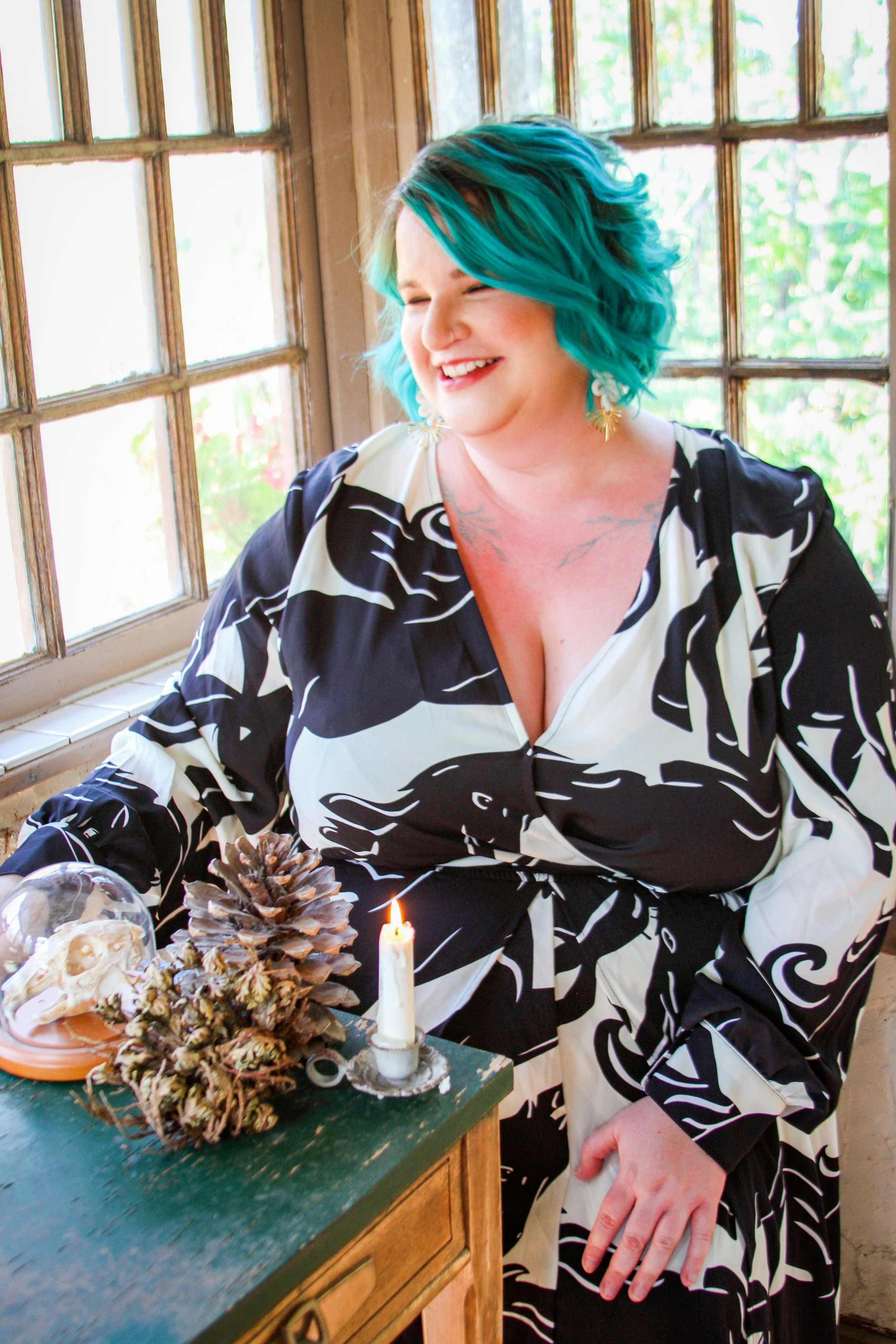Trauma Anniversary Effect: Your Body Remembers
Trauma Anniversary Effect: Your Body Remembers
Anniversary of the traumatic event can serve as a powerful reminder of past or even ongoing pain, and navigating the anniversary of a traumatic event requires a delicate balance of mindfulness and compassion.
These trauma anniversaries have a unique power to evoke a range of emotions, from sadness and grief to anger and anxiety. It is during these times your body remembers, that practicing self-care and mindfulness becomes essential.
In this blog post, we will explore what a trauma anniversary is, how these may affect us as survivors, and the importance of being mindful of your emotional well-being and practicing self-compassion as you navigate such anniversaries.
I'd also like to share my personal experience from the past year in commemorating my own trauma anniversary. This reflection also sheds light on how such occasions present for fellow survivors.
What Is The Anniversary Effect?
The anniversary effect refers to symptoms experienced around trauma anniversaries. Trauma anniversary effects can conjure a variety of emotions and be potentially triggering for survivors. The trauma anniversary effect is a much more common experience than I believe most people realize.
Just as trauma and PTSD predominantly affect our physical and instinctual responses, there are moments when these instinctual reactions in response to the environment overshadow our cognitive functions.
Our body and brain often have a timeline that remembers and recalls the period when our trauma occurred. This is why many survivors of different traumas may find that significant dates associated with these events can trigger the reactivation of trauma symptoms in their bodies.
The anniversary effect doesn’t necessarily mean your brain is actively counting down 365 days and deliberately revisiting the trauma. Instead, various environmental cues, such as seasonal changes, weather patterns, specific smells, ongoing activities, conversations, and even the mere mention of certain dates, can spark memories associated with the trauma.
People can experience the anniversary effect even without being consciously aware of the date or the significance of the timing.
Trauma Anniversary Symptoms
Trauma anniversary symptoms occur around the time of trauma anniversaries, individuals may reencounter sensations and symptoms, such as flashbacks, dissociation, anxiety, depression, and hypervigilance, carrying the emotional burden of these experiences. These are trauma anniversary symptoms.
Earlier this year, I had the tenth anniversary of my sexual assault and wanted to make sure that I took really good care of myself through it, both physically and emotionally.
Despite being a decade since my trauma, I held hope that the anniversary would be easier and that I wouldn't experience any adverse reactions, although I know this isn't always the case.
I tend to be overly optimistic at times, but leading up to my anniversary, I dedicated considerable effort to therapy sessions, particularly EMDR, to address and process my traumatic experiences effectively.
Given my interest in witchcraft, I also engaged in some community-centered witch activities related to this occasion.
In the days leading up to the anniversary, I felt a sense of unease, but during the actual week of the anniversary, heightened anxiety and emotional sensitivity were prevalent. These are some of the trauma anniversary symptoms.
On the day of the anniversary and the days following it, I experienced intense emotional and physical fatigue, coupled with a profound sense of grief. I also found myself grappling with resurfacing old beliefs, particularly those revolving around feeling perpetually stuck in a victim mindset.
By this, I mean a feeling of being wounded and damaged to the point where I feel shattered and incapable, almost as if I'm merely existing rather than truly living and flourishing. There's a fear that I may never form connections or meaningful relationships, leading to a sense of constant loneliness and isolation.
I worry that others won't comprehend or accept me because of what I've experienced, potentially leading to rejection or alienation. These are also trauma anniversary symptoms.
Experiencing the resurgence of these emotions brings about a strange duality - a conscious awareness that what I'm feeling isn't presently happening, isn't real, and isn't a belief I've harbored for quite some time. Yet, simultaneously, there is a vivid and intense reemergence of those emotions, sensations, and beliefs that are hard to shake off. This is the nature of trauma anniversary symptoms.
PTSD Anniversary: What can I do?
PTSD Anniversary: What Can I Do?
There are many ways we can take care of ourselves through PTSD anniversaries and the trauma anniversary effect. When I approached my PTSD Anniversary, I took the proactive step of sharing with many people in my life that it would be an anniversary week for me. I received abundant support from those I confided in, including colleagues, fellow group members in therapy and coaching, and close friends. I discussed it extensively with my therapist to ensure I was ready and had a plan in place for coping with this upcoming milestone.
Social support and activating your social network are incredibly helpful during the trauma anniversary effect.
I believe it's paramount to be exceptionally gentle and kind with yourself during a PSTD anniversary. It's important to avoid overloading your schedule and to ensure you're not overly preoccupied or busy.
This doesn't mean you want to have oodles of free time where you're ruminating and dwelling on emotions during a PTSD anniversary. Instead, engage in activities that provide support and structure. While going through my PTSD anniversary, I continued to see my clients, attend my support group, and engage in activities that resonated with me and allowed me to serve my community in advocating for change against violence and rape culture.
While maintaining your usual commitments, it's also beneficial to prioritize self-care during a PTSD anniversary. This could involve stocking up on nourishing food that is easy to prepare and gentle on the stomach, as anxiety and nausea can impact appetite.
Including favorite comfort foods that bring solace and ease during such times can also be comforting during a PTSD anniversary. I personally find drinking herbal teas to be incredibly soothing and relaxing, providing great comfort during difficult times.
Engaging in various sensory coping techniques can also be powerful and beneficial. I enjoy hot baths with bath bombs, using essential oils, lighting candles, and immersing myself in calming music, books, and podcasts to create a soothing and comforting environment during trauma anniversary effects.
Keeping in touch with my family and friends and allowing myself to cry when needed were incredibly important. Knowing that the person on the other end of the conversation was not only okay but also capable of holding space for me without trying to fix things or stop my emotions was comforting to my trauma anniversary effect symptoms.
It was reassuring to have someone simply be there for me as I navigated through my feelings, understanding that sometimes we just need to experience and move through our emotions.
Our body and mind may revert to a state where we remember a life-threatening and dangerous event, re-experiencing the psychological and physical impacts of fear, dread, and profound grief associated with that moment.
Surviving Trauma: Another Trauma Anniversary Effect
Another important trauma anniversary effect to remember is that the trauma anniversary effect signifies not only the anniversary of the violence but also the anniversary of surviving that violence.
In addition to the trauma recovery process, acknowledging these trauma anniversaries serves as a reminder that you made it through and are here, alive, despite the challenges.
Not everyone is as fortunate to survive trauma, and often, the outcome is beyond our control. These trauma anniversaries testify to our resilience in overcoming something horrific and life-threatening, highlighting our strength in navigating through adversities.
Your body's survival responses—fight, flight, freeze, and appease, particularly the often-criticized freeze and appease reactions—played a vital role in ensuring your survival of trauma.
Recognizing that you overcame this traumatic experience underscores the strength and resilience that carried you through surviving trauma.
Amidst the profound grief, there can also be a sense of immense relief. Acknowledging that you made it through a difficult experience, survived something terrible, and reconstructed your life from its shattered state underscores the significant changes and ongoing rebuilding process that follows surviving trauma.
There is much to grieve and feel sorrow for, to acknowledge within ourselves and our pain. Simultaneously, there is much to embrace with relief and pride in what we have reconstructed through these experiences. Recognizing and embracing this complete picture of our journey can profoundly benefit our healing process.
Engaging in activities that acknowledge your survival and the resources available to you, such as reaching out to your therapist, support groups, and community, and practicing gratitude for yourself and the support systems around you, can greatly aid in navigating through and embracing the entirety of your experience.
The Trauma Anniversary Effect: highlight the traumatic event, resilience, and survival that followed.
Trauma anniversary effects can also serve as an opportunity to reignite the fire fueled by the fight response, to advocate, resist, and drive change. This could be a fitting moment to consider engaging in activism, supporting causes through donations of time, effort, or funds, and voicing the issues that matter to you.
Consider educating those in your circle if you feel ready to do so during that week of the trauma anniversary. Personally, I wasn't up for it during that specific week of the trauma anniversary. However, engaging with a support group provided an immensely meaningful and active way to participate during that time, which can also offer great comfort and solace. And following that week of the trauma anniversary, I felt a renewed conviction to engage in change-making action.
As much as I hoped things would be smooth and easy during a trauma anniversary, it's important to acknowledge that it might not always be the case, and that's okay.
We must approach ourselves with generosity and compassion during trauma anniversaries, recognizing that experiencing difficulties on our trauma anniversary does not negate our progress or indicate a setback. It simply illustrates how our body, brain, and heart retain those memories.
Although I didn't practice it myself, it's essential to hold space for every emotion that comes up during a trauma anniversary. We often can only anticipate how we will truly feel once we are in the moment.
While it was incredibly painful to navigate through that trauma anniversary week, it held a profound meaning for me. It highlighted that I hadn't simply overlooked or moved past what occurred. Every part of my being acknowledged the significance of surviving trauma, emphasizing that I survived, recovered, and rebuilt from it, signifying its importance in my journey.
Spiritual Healing from Trauma
Spiritual Healing from Trauma
Another important part of ourselves impacted by the trauma anniversary effect is spirituality. As for witchcraft, it's a passion of mine. I didn't begin my life journey being witchy; it actually emerged as a part of my spiritual healing from trauma and a way to rediscover my sense of self. Connecting with my Celtic, Germanic, Norse and Scottish Druidic ancestry felt like a return to an essential and significant ancestral lineage for me.
One significant aspect I find fascinating about spiritual healing from trauma, ritual and ceremony, regardless of their origins, is that they engage and communicate with our unconscious mind.
These spiritual healing practices tap into the realm of our minds that navigate dreams, automatic instinctual responses, and reactions to trauma triggers.
By incorporating symbolism, imagery, songs, words, chants, actions, and dance within rituals and ceremonies, we infuse them with profound meaning that effectively communicates with our unconscious mind.
The power of spiritual healing ceremony and ritual lies in how it primes our unconscious mind—the foundational part of our psyche—to assist our conscious mind as we navigate a process or trauma healing.
Although I'm not a fan of discussing manifestation due to its association with white capitalism, there is value in the concept of focusing on our goals and desires to bring them to fruition. By priming our unconscious mind through techniques like mental rehearsal and visualization, we heighten our awareness to recognize potential opportunities in our environment.
Ultimately, rather than manifesting outcomes, we are signaling to our unconscious mind the things we desire in life, prompting it to identify and highlight relevant cues and interests for us to explore further.
While it may appear as a form of manifestation or divine messages guiding us towards meaningful pursuits, some spiritual beliefs suggest that our unconscious mind serves as the conduit for communicating with spirits or deities through practices like prayer.
However, it can also function as our automatic, instinctual, and unconscious brain alerting us to information or cues that we may need to pay attention to.
Spiritual healing from trauma through ceremony and ritual hold tremendous power, a universal truth observed across diverse cultures and practices. These spiritual healing practices transcend cultural boundaries and are evident in various traditions.
Unfortunately, even colonizing forces recognized the importance of spiritual healing ceremony and ritual, leading them to suppress indigenous practices rooted in deep ritual traditions.
Spiritual healing ceremonies and rituals for trauma are significant in various religious groups and communities. Personally, I believe they resonate with us as being inherently human.
As a species, we embody mysticism, ceremony, and ritual as a creative and symbolic means of connecting with ourselves and the world around us. It serves as a method for our existence and interaction within the world, which I find quite fascinating.
In my experience, ceremony and ritual involve reconnecting with ancestral practices rooted in Celtic paganism, Germanic paganism, and Scottish Druidism. This includes engaging in various rituals, traditions, practices, and connections to different deities and energies.
I particularly focus on aligning with the natural cycles of the world and Earth, fostering a deeper connection to nature.
During my trauma anniversary, I engaged in a ritual, inviting all the magical individuals in my life to participate in a manner that resonated with their own cultural traditions. It's well-known that significant and impactful changes can transpire when communities unite, even on an energetic level.
Engaging in this ritual also required me to step out of my comfort zone and seek social support, inviting them to join and participate in the experience. It was a significant and empowering new skill for me.
I deeply appreciate everyone who participated. Knowing that we were all engaged in a shared intention on the same day and feeling their energy directed toward me was exceptionally powerful.
I firmly believe that the ceremony and ritual I engaged in were aligned with my intentions for this anniversary and ongoing recovery process, effectively priming my brain to progress in that direction.
Through these actions, alongside my journey of healing and recovery, I've experienced a gradual process of shedding, releasing, letting go, and moving beyond the trauma.
The use of ritual and ceremony, along with community connections, support systems, and EMDR sessions with my therapist, played significant roles in facilitating this transformative progress.
Trauma anniversaries are a normal part of the healing process and should be anticipated and addressed with care. Reflect on how spiritual healing ceremonies and rituals may already be integrated into your life.
For instance, lighting candles on a birthday cake, singing a song, making a wish, and blowing out the candles are integral to birthday celebrations. Similarly, attending church, hearing scriptures, and engaging in prayer, meditation, and holiday customs involve rituals that enrich our lives and offer spiritual healing from trauma.
These practices can serve as powerful tools for times when you need additional care, healing, and recovery. Consider incorporating rituals and ceremonies aligned with your cultural practices, ancestral lineage, or personal preferences to aid your recovery journey.
Healing From Trauma: The Trauma Anniversary Effect
Healing From Trauma: The Trauma Anniversary Effect
Navigating trauma anniversaries is a profound and personal journey that warrants self-awareness, self-compassion, and care.
As we honor these significant periods, we must acknowledge the range of emotions that may surface and create space for healing and reflection.
Engaging in rituals and ceremonies, reaching out to supportive communities, and seeking therapeutic interventions can all play pivotal roles in recovery. By embracing these practices and being mindful of our individual needs, we pave the way for healing, growth, and resilience.
Remember, you are not alone in this journey, and it's okay to prioritize your well-being and journey toward healing during these challenging times.
Ready to start trauma focused therapy today? Sign up to work with me here. I offer trauma therapy with multiple approaches to best meet the needs of trauma survivors. Read more about working with me here.
You can also try out my online group offers: Trauma Coping Skills Workshop and Group Therapy for Trauma to connect with a supportive community and learn helpful trauma coping skills from home.
Want to learn more about YOUR survivor archetype? Take the QUIZ and get unique skills specific to you!
You can sign up for my newsletter to get tips for trauma recovery right to your mailbox. You can also listen to my podcast, Initiated Survivor, anywhere you hear podcasts. Follow me on Instagram, TikTok, Facebook, and Youtube to get awesome survivor content.
Thank you for reading. Until next time!







